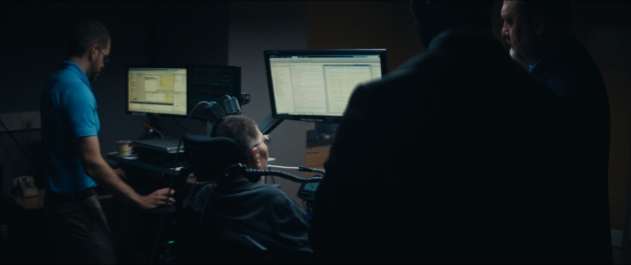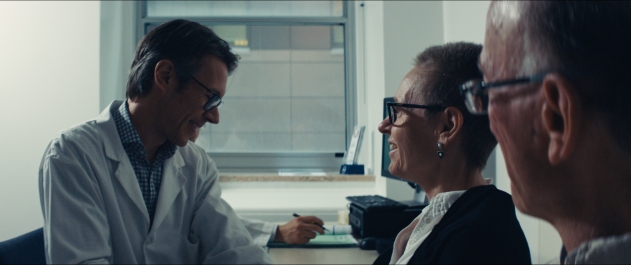
There are currently about 200,000 people throughout the world with brain implants. The documentary I AM HUMAN, which made its world premiere at the 2019 Tribeca Film Festival, follows three people who undergo invasive surgery to have such machine technology implanted in their brain. Bill is a tetraplegic who could only move the area above his upper chest. Anne is a Parkinson’s patient who was feeling the deleterious affects of the disease on her motor movements and facial expressions. Stephen had acquired blindness in his middle age.
Bill undergoes experimental surgery to implant a device that can be connected to a computer and participates in tests that aim to restore his brain’s ability to connect to his body’s nerve cells and control movement; he is eventually able to move his arm back and forth in a laboratory setting. Anne undergoes relatively more routine surgery for deep-brain stimulation that provides currents of electricity, controlled by a pacemaker in her chest, to specific areas of the brain that control movement. While this doesn’t affect the progression of the disease, it does alleviate many of the symptoms. Stephen has a chip implanted behind his eye that will help him to regain sight of at least the outlines of objects. The film is concerned in part with how changing the brain changes what it means to be human, but the individuals who are featured express much more grounded concerns; they hope that brain interface technology will help alleviate or otherwise positively affect their symptoms.

Bill
The directors Taryn Southern and Elena Gaby arguably approach the topic from an ableist perspective. There is no voice given to disability advocates who may argue that there are people with similar conditions who consider themselves on a spectrum of ability.

Anne
Brain-computer interfaces are being developed as consumer devices, as well as surgical innovations. EEG devices are publicly available. Some can provide biofeedback related to brain activity and pulse rate, and are advertised for enhancing recreational activities such as meditation or for medical purposes such as detecting insulin drops. However, these devices are often owned and developed by private companies that see an opportunity to access the brain data of users.
I AM HUMAN is Taryn Southern and Elena Gaby’s directorial debut. The duo also wrote and produced the film. The cast includes Bryan Johnson, David Eagleman, Ramez Naam, Tristan Harris, Nita Farahany, and John Donoghue.
TOPICS